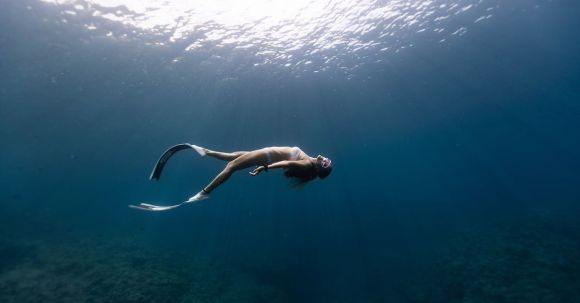Diving is a thrilling and adventurous activity that allows individuals to explore the mesmerizing underwater world. However, it is crucial to remember that diving also comes with certain risks. That is why having a reliable dive buddy by your side is essential for ensuring a safe and enjoyable experience. In order to be a competent and responsible dive buddy, there are several key skills that you need to possess. These skills will not only enhance your own safety but also contribute to the well-being of your dive partner. Let’s explore these essential skills for dive buddy safety.
1. Communication
Effective communication is the foundation of a successful dive buddy partnership. Underwater, verbal communication is not possible, so divers rely on hand signals and non-verbal cues to convey important messages. It is imperative to establish and practice a set of standardized hand signals before every dive. These signals should cover essential messages such as “OK,” “stop,” “low on air,” and “problem.” Clear and concise communication ensures that both buddies are aware of each other’s status and can respond promptly in case of an emergency.
2. Situational Awareness
Maintaining situational awareness is crucial for dive buddy safety. As a dive buddy, it is your responsibility to be aware of your surroundings at all times. This includes keeping track of your partner’s location, monitoring depth and time, and being alert to any potential hazards or changes in conditions. By staying vigilant and observant, you can identify and address any issues before they escalate into dangerous situations.
3. Buddy Checks
Conducting pre-dive buddy checks is a fundamental safety practice that should never be overlooked. Before entering the water, it is essential to thoroughly inspect each other’s equipment, ensuring that all gear is in proper working order. This includes checking the air supply, securing the dive mask and fins, and confirming the functionality of dive computers or gauges. Performing these checks together not only enhances safety but also fosters a sense of trust and teamwork between dive buddies.
4. Emergency Procedures
Being prepared for emergency situations is paramount in diving. Dive buddies should be well-versed in emergency procedures such as sharing air, ascending safely, and managing equipment malfunctions. Regular practice of these procedures in controlled environments, such as during dive training or simulated scenarios, can build confidence and muscle memory. By knowing how to react swiftly and effectively in an emergency, you can potentially save lives.
5. Navigation
Navigational skills are essential for dive buddies, especially when exploring unfamiliar dive sites. Having a good sense of direction and being able to navigate underwater using a compass or natural landmarks can prevent getting lost or separated from your buddy. Additionally, it is important to establish a plan before the dive, including entry and exit points, dive objectives, and meeting spots in case of separation. Clear communication and adherence to the agreed-upon plan will ensure a smooth and safe dive.
In conclusion, being a responsible dive buddy requires a combination of skills and knowledge. Effective communication, situational awareness, buddy checks, emergency procedures, and navigation are all critical components for ensuring the safety of both you and your dive partner. By continuously practicing and honing these skills, you can enhance your diving experience and create lasting memories while exploring the wonders of the underwater world. Remember, safety should always be the top priority when diving, and a competent dive buddy is an invaluable asset in achieving this goal.





